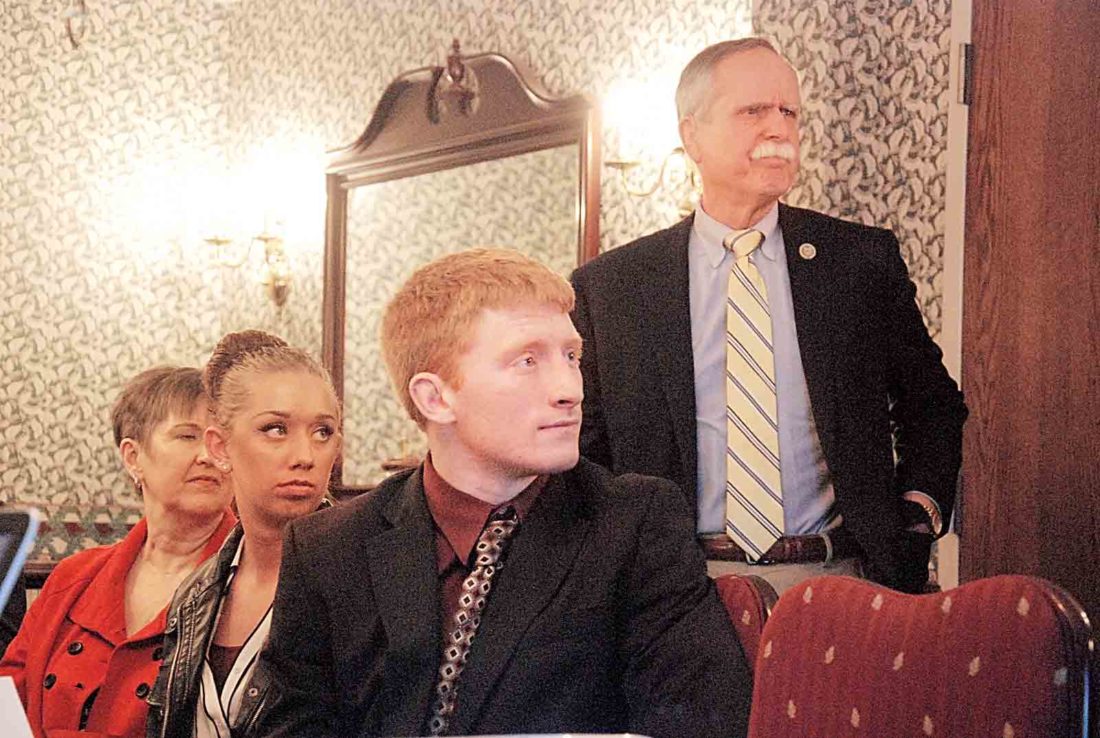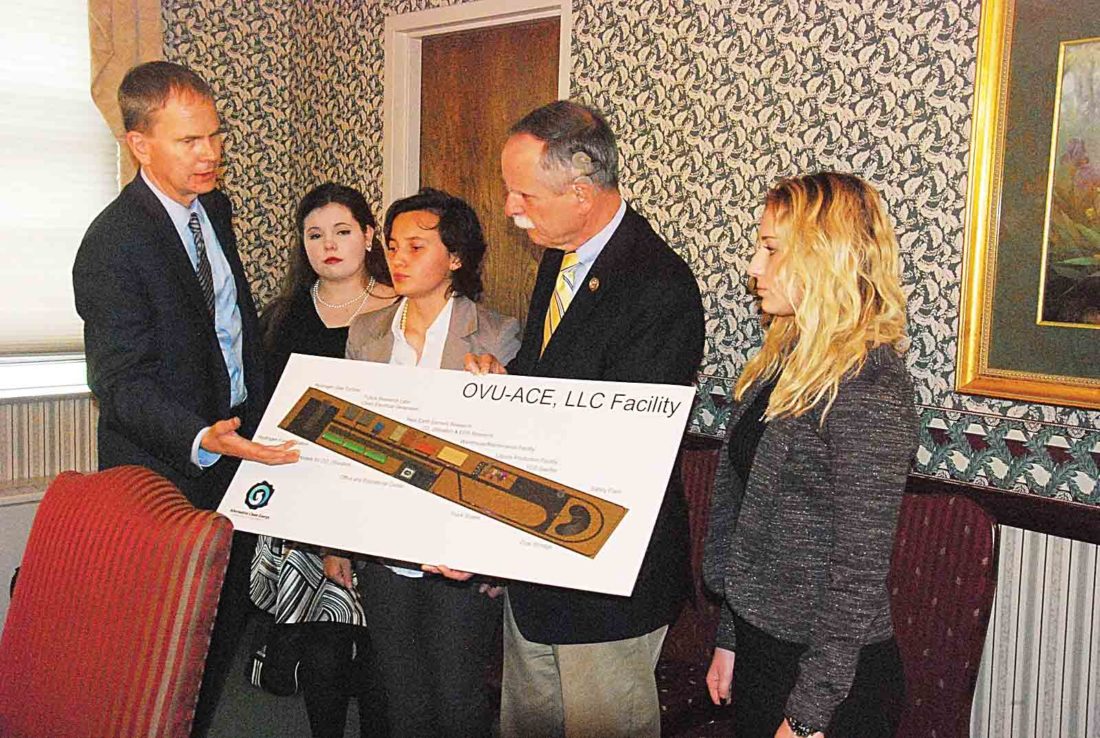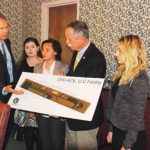Rep. David McKinley visits Ohio Valley University
Hears about clean water, energy projects
- U.S. Rep. David McKinley, standing, listens as Ohio Valley University Associate Professor Steve Opoku-Duah explains how he and students utilize a piece of proprietary water treatment technology during a roundtable meeting at the school Tuesday, along with, from left, OVU Associate Executive Vice President Cecelia Goff, junior Savannah Arthur and senior Austin Antill. (Photo by Evan Bevins)
- Ohio Valley University Executive Vice President Jeff Dimick, left, discusses a diagram of the proposed coal-to-liquids facility to be owned by the OVU-ACE Foundation with U.S. Rep. David McKinley, second from right, as students, from second from left, Lauren Cunningham, Mary Salas and Bethany Wedmore listen Tuesday at the school. (Photo by Evan Bevins)

U.S. Rep. David McKinley, standing, listens as Ohio Valley University Associate Professor Steve Opoku-Duah explains how he and students utilize a piece of proprietary water treatment technology during a roundtable meeting at the school Tuesday, along with, from left, OVU Associate Executive Vice President Cecelia Goff, junior Savannah Arthur and senior Austin Antill. (Photo by Evan Bevins)
VIENNA — U.S. Rep. David McKinley thinks answers to some pressing questions facing the world could be found at Ohio Valley University.
During a visit to the school Tuesday, McKinley, R-W.Va., was briefed on an ongoing clean water project using proprietary technology and plans to build a coal-to-liquids facility in Parkersburg. The former could be used to provide water in under-developed areas or disaster sites, while the latter could help revive the struggling coal industry, he said.
“I think there’s a series of things that are important coming out of Ohio Valley University,” McKinley said during a break between meetings Tuesday.
In the first session, Steve Opoku-Duah, associate professor of chemistry and water science, showed McKinley an electron-activated reactor invented by Dennis Johnson, of EcH2O International Group. The device purifies water by breaking down contaminants through oxidation and electron bombardment.
Johnson has allowed the university to use the technology as an educational resource while Opoku-Duah and his students provide feedback and help improve it.

Ohio Valley University Executive Vice President Jeff Dimick, left, discusses a diagram of the proposed coal-to-liquids facility to be owned by the OVU-ACE Foundation with U.S. Rep. David McKinley, second from right, as students, from second from left, Lauren Cunningham, Mary Salas and Bethany Wedmore listen Tuesday at the school. (Photo by Evan Bevins)
“This is not a research university, but I have a little research team with my students,” Opoku-Duah said.
McKinley said he could see how the technology could be useful in a variety of situations and asked what federal agencies might be able to provide assistance.
“The fact that they have not worked with a federal agency is probably a detriment,” he said. “(It) could be an enormous breakthrough, but I’ve got to do some more research.”
The technology could even be used to treat water contaminated with C8, a chemical used in the Teflon-manufacturing process for years at the Washington Works site formerly owned by DuPont, Opoku-Duah and McKinley said.
“It’s going to break down the C8 and all the other contaminants and leave the carbon filter to work” longer, Opoku-Duah said, referring to the carbon filter systems DuPont and spinoff Chemours paid to install in some affected water systems, including Vienna’s last year.
The afternoon session focused on clean energy, particularly the coal gasification facility the university plans to build through OVU-ACE LLC, a for-profit venture headed by Jeff Dimick, executive vice president and chief financial officer for the school.
“This is a great way that might be … an alternative to burning coal for energy,” McKinley said.
The project is seen as an alternative revenue source for OVU, with an ultimate goal of allowing students to graduate debt-free, as well as an opportunity to expand the school’s curriculum and work in concert with other institutions to provide educational opportunities.
Dimick said OVU-ACE has closed on a 46-acre site off 29th Street between the Memorial Bridge and Grand Central Mall in Vienna. Plans call for construction to begin later this year.
McKinley said universities and colleges could be drivers in improving the state’s economy.
“We think part of the turnaround … for West Virginia is more money in research,” he said.








